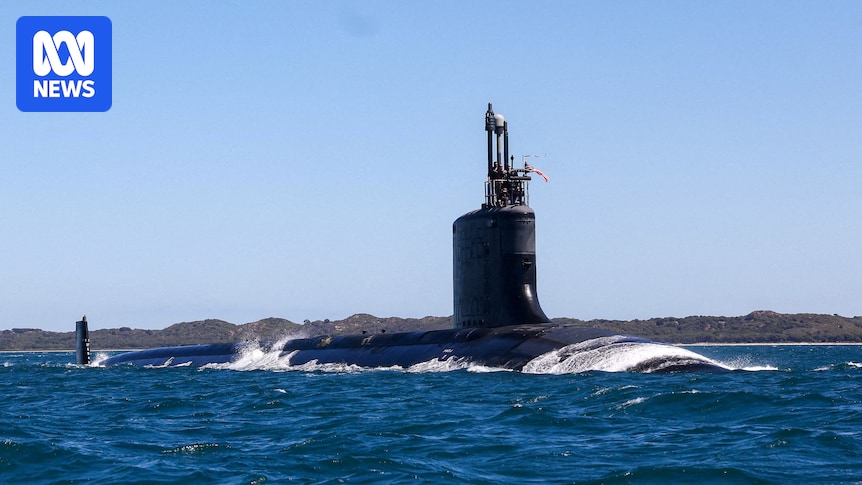The United Kingdom and Australia will sign a new five-decade treaty to cement the AUKUS submarine pact and bolster shipbuilding in both countries as the Trump administration continues to scrutinise the ambitious technology-sharing deal.
The new pact is expected to be announced by Foreign Minister Penny Wong and Defence Minister and Deputy Prime Minister Richard Marles — along with their British counterparts David Lammy and John Healey — in the wake of annual AUKMIN talks in Sydney today.
It will be signed by Mr Marles and Mr Healey tomorrow when they meet in the deputy prime minister’s electorate in Geelong.
While full details are not yet clear, the agreement is expected to cover the “full breadth” of cooperation between the UK and Australia to develop the next-generation AUKUS nuclear-powered submarine — including to develop the workforce and infrastructure Australia will need to operate and sustain the highly sophisticated military platform.
In a statement, Mr Healey said the “historic” treaty “confirms our AUKUS commitment for the next half century” and would deliver more than $40 billion in exports to the United Kingdom over 25 years.
“Through the treaty, we are supporting high-skilled, well-paid jobs for tens of thousands of people in both the UK and Australia,” he said.
Foreign Secretary David Lammy said the UK–Australia relationship was “like no other, and in our increasingly volatile and dangerous world, our anchoring friendship has real impact in the protection of global peace and prosperity.”
Top US Defence official Elbridge Colby, who is conducting the Trump administration’s review, has previously voiced concern about the pact and suggested the US may not be able to sell Virginia Class submarines to Australia in the 2030s without compromising its national security.
The bilateral treaty comes as Britain’s defence and foreign ministers travel to Australia to meet their counterparts. (Reuters: Royal Navy/Benjamin Lyon/LPhot Daniel Bladen)
Other US government sources have also speculated that the administration might make fresh demands of Australia in order to lock in continuing support from the US.
One UK government official told the ABC that both governments were sending a “clear and obvious” signal to the Trump administration that they were not wavering on AUKUS and their support for it remained “rock-solid.”
The federal government has already committed more than $4 billion to bolster submarine production in the United Kingdom, which will work with Australia to co-design the next-generation AUKUS submarine and deliver Australia the small-scale nuclear reactors that will power them.
The government has already publicly flagged it will need to plough at least $360 billion into developing and sustaining nuclear-powered submarines over the decades, but the ABC has been told Australia has not made any additional direct funding commitments to the UK submarine industrial base under this new treaty.
While the United Kingdom’s political commitment to AUKUS has remained firm, the British shipbuilding industry has also been beset with serious cost blowouts and delays.
After their meetings in Sydney and Geelong, the four ministers will travel to Darwin and visit the UK aircraft carrier HMS Prince of Wales, which is participating in the massive Talisman Sabre military exercises, which will draw in more than 30,000 military personnel from almost two dozen countries.
It is the first time in more than two decades that a UK aircraft carrier has visited Australia, and the British government says it is a clear signal of its resolve to remain a force in the Indo-Pacific, despite the pressures it is facing due to Russia’s invasion of Ukraine.
